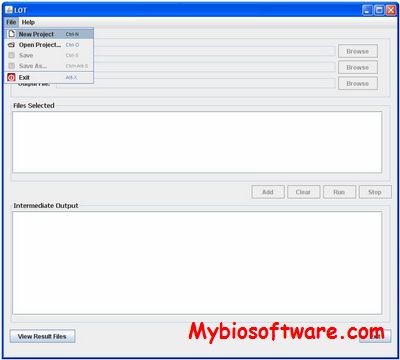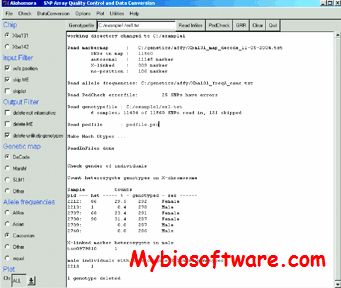LOT 1.2
:: DESCRIPTION
LOT (Linkage analysis of Ordinal Traits) is a software program that performs linkage analysis of ordinal traits for pedigree data. It implements a latent-variable proportional-odds logistic model that relates inheritance patterns to the distribution of the ordinal trait.
::DEVELOPER
The Collaborative Center for Statistics in Science (C2S2)
:: SCREENSHOTS
:: REQUIREMENTS
- Linux / Windows /MacOsX
- Java
:: DOWNLOAD
:: MORE INFORMATION
Citation:
Zhang, M., Feng, R., Chen, X., Hu, B., and Zhang, H. (2008)
LOT: a Tool for Linkage Analysis of Ordinal Traits for Pedigree Data.
Bioinoformatics 24;1737-9.


